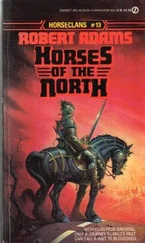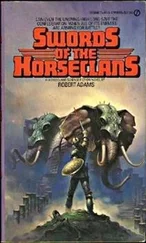Robert Adams - Bili the Axe
Здесь есть возможность читать онлайн «Robert Adams - Bili the Axe» весь текст электронной книги совершенно бесплатно (целиком полную версию без сокращений). В некоторых случаях можно слушать аудио, скачать через торрент в формате fb2 и присутствует краткое содержание. Жанр: Фантастика и фэнтези, на английском языке. Описание произведения, (предисловие) а так же отзывы посетителей доступны на портале библиотеки ЛибКат.
- Название:Bili the Axe
- Автор:
- Жанр:
- Год:неизвестен
- ISBN:нет данных
- Рейтинг книги:3 / 5. Голосов: 1
-
Избранное:Добавить в избранное
- Отзывы:
-
Ваша оценка:
- 60
- 1
- 2
- 3
- 4
- 5
Bili the Axe: краткое содержание, описание и аннотация
Предлагаем к чтению аннотацию, описание, краткое содержание или предисловие (зависит от того, что написал сам автор книги «Bili the Axe»). Если вы не нашли необходимую информацию о книге — напишите в комментариях, мы постараемся отыскать её.
But even as Bili and his warriors rally to the Kuhmbuhluhmers’ aid, the forces of the Witchmen are on the move again. Are Bili and Prince Bryuhn galloping straight into a steel-bladed trap from which death is the only release?
Bili the Axe — читать онлайн бесплатно полную книгу (весь текст) целиком
Ниже представлен текст книги, разбитый по страницам. Система сохранения места последней прочитанной страницы, позволяет с удобством читать онлайн бесплатно книгу «Bili the Axe», без необходимости каждый раз заново искать на чём Вы остановились. Поставьте закладку, и сможете в любой момент перейти на страницу, на которой закончили чтение.
Интервал:
Закладка:
Erica and her Ganiks stayed in the area around the low cave in which they had wintered far longer than any of them would have preferred to do. As Ganiks had always done, they had not cared for or sheltered the horses through the long months of cold, but had simply left the mountain ponies to their own devices to live or die or stray far away. In the more southerly area from which she and the bullies had ridden, there were numerous large and small herds of semidomesticated ponies roaming hill and vale, and they were easily caught by even an unmounted man, were he good with a rawhide lariat—and few bunch-Ganiks but were proficient.
But such feral herds were obviously not a feature of these northern reaches, as they quickly discovered. The only ponies sighted and run down by the roving horsemen were easily recognized to be animals brought into the area by themselves last autumn. Wary of the large and murderous hunt that had driven them all out of the settled farming lands of their “relatives,” the Kuhmbuhluhnized Ganiks, they were loath to raid there for the needed mounts.
However, it soon became obvious to all that if the entire party was to be mounted as they traveled on, such a raid was a necessity. But they took no chances on this raid. They set no fires, they murdered every man, woman and child quickly, then stole only small, valuable, easily transportable loot— foodstuffs, weapons, jewelry, clothing, blankets and the like— along with the horses, ponies, mules and few head of cattle the two neighboring farmsteads had afforded them. Reunited with those who had stayed behind for lack of a mount, the whole party immediately moved on westward, angling toward the north, traveling very fast for the first week or so.
Of course, they had no way of knowing that the bulk of the men of fighting age were not in the least likely to pursue them this time, being already on the march toward New Kuhmbuhluhnburk in obedience to the summons of King Mahrtuhn. Nor had they any means of being aware that their present course was leading them directly and inexorably into the very midst of a hot little war which would include another meeting with the very condotta that had destroyed the power of the Ganik outlaw bunches during the preceding year and thus set these few surviving leaders on the run.
Two weeks of travel brought the small party into a region profusely covered with huge-boled, high-thrusting oak trees, almost grassless for long stretches due to the acid quality of the tannin-laden leaf mulch underfoot. Scattered, overgrown stumps showed that once, long ago, someone had harvested oaks as large as or even larger than the biggest of the presently existing forest giants, but there was no recent sign of mankind. Not even when they chanced across a once-wide trail leading southwest did they espy any tracks but those of the beasts of the wildwood.
Therefore, since pursuit had not materialized this time, since game seemed abundant hereabouts and their plundered stores were almost expended, the Ganiks scattered to seek out a grassy area, if possible, near to a source of water. It was Horseface Charley’s group that found an almost ideal spot.
Invisible from the disused trail, at some long-ago time the woodland glade had obviously been the abode of sentient beings. All that now remained of their shelters was the oval or circular pits—all eroded and fallen in, true, but too regular in outline to have been the work of nature—the rotted stumps of the posts and the deep beds of ancient charcoal between now-mossy stones. An icy-clear spring and the burbling brooklet it fed lay nearby.
The flatter portion of the glade grew thickly with what Horseface had reported to be grass. Erica, however, was quick to note that the growth was, rather, wild grain—oats, from the look of the still-green ears. And a partial excavation of one of the larger of the old dwelling sites in preparation for readying it for new occupancy brought to light a sickle wrought of decayed bone but still mounting a few teeth of flint and jasper, all sharp as the day they had been knapped.
There were a few other stone tools, mostly broken, and a vast quantity of chips near to one end of the former shelter, but not a single scrap of metal.
None of the Ganik bullies displayed even a smidgen of curiosity, simply accepting the partially prepared site and quickly adapting it to their uses, and in answer to Erica’s deluge of questions about the previous occupants of this latter-day neolithic site, Bowley replied shortly.
“Hell, Ehrkah, I don’ know! Could been Ganiks, mebbe. Lotsa real religious Ganiks won’ use no metal of eny kin’,
‘count of Plooshun. But it don’ matter none, enyhaow; whoevuh it wuz, they been done gone a lowng tahm.”
They stayed over for the best part of two more weeks, feasting on elk and deer and shaggy-bull, smoking more meat to take with them and rough-curing the hides to patch boots and jerkins and to fashion, according to Erica’s instructions, bandoliers for loaded magazines and stripper clips of rounds for the rifles, as well as a belt and holster for her pistol.
Then they all set out again, riding the old trail, since it angled rather more south—the direction they wanted to go— than west at this point. After a couple of days of traveling, they began to flank a chain of high, tree-grown hills on their right, with the trail now leading almost due south but, disturbingly to them, showing signs of fairly recent use by men, beasts and wheeled conveyances. Visible signs of logging lined the trail, too, none of the stumps dating from any earlier than last autumn or early winter.
But they doggedly stuck to the trail, for all that most of the Ganiks loudly and often decried the folly of so small a bunch moving in the open in obviously settled Kuhmbuhluhner lands. Through Bowley, Horseface and Counter, Erica forced her will in this matter. While the Ganiks might consider a score of riders a small bunch, she realized the considerable edge given them by the four rifles and the pistol. She also knew that to take to the woods would be to cut their rate of speed down to a virtual crawl, and she was most anxious to get out of this provenly hostile land and on the road toward first Broomtown and then the Center… and a moment of reckoning with Dr. Harry Braun.
Nonetheless, they always took pains to camp well out of sight or sound of the trail, to maintain smokeless fires and to carefully scout out the trail in both directions before again setting out upon it of mornings. It was one of these scouts who first brought word of strange men on the trail, moving up from the south.
Ensign James Justis was given his orders for the morrow by his company commander, Lieutenant MacNeill. “Jimmy lad, a woodcutter party’s to go out at dawn to fetch back some of the trees they girdled and left to cure last year. I doubt me there’ll be any whiff of trouble, for we’ve seen not one of the Kuhmbuhluhn folk since the last battle, but you know the colonel—he insists on security, naetheless.
“So, put a couple dozen of our pikemen on ponies and you and them ride along out and back with the cutters and their wagons. Draw rations from regiment for you and ours. It’s up to the cutters to bring their own. See how many boar spears you can ferret out—scarce as decent pikeshafts are become, I want none of ours broken or warped in those damp forests.
“You might choose a couple of good shots and give them a prod or two and maybe a crossbow. Some fresh game for the mess would warm my heart, 1 vow.”
Ensign Justis had experienced scant difficulty in finding two dozen volunteers from the company of pikemen. The entire company would have come with him, so bored were they with the unceasing day-in, day-out pike drill, with the shouts and snarls and profane curses of glowering, red-faced sergeants and corporals, while the mounted officers watched critically from a distance.
Читать дальшеИнтервал:
Закладка:
Похожие книги на «Bili the Axe»
Представляем Вашему вниманию похожие книги на «Bili the Axe» списком для выбора. Мы отобрали схожую по названию и смыслу литературу в надежде предоставить читателям больше вариантов отыскать новые, интересные, ещё непрочитанные произведения.
Обсуждение, отзывы о книге «Bili the Axe» и просто собственные мнения читателей. Оставьте ваши комментарии, напишите, что Вы думаете о произведении, его смысле или главных героях. Укажите что конкретно понравилось, а что нет, и почему Вы так считаете.












